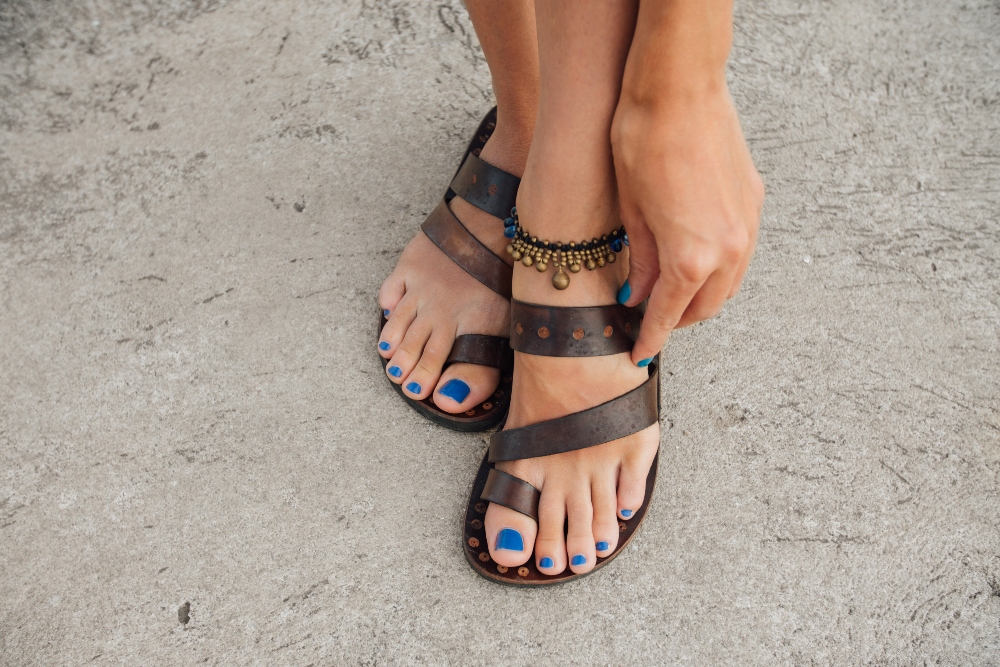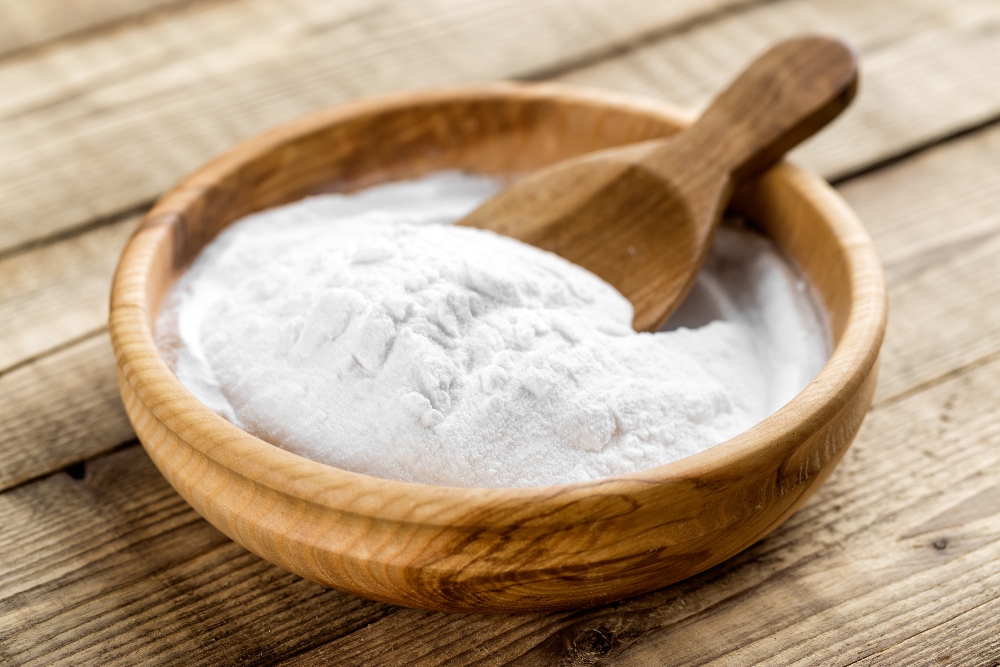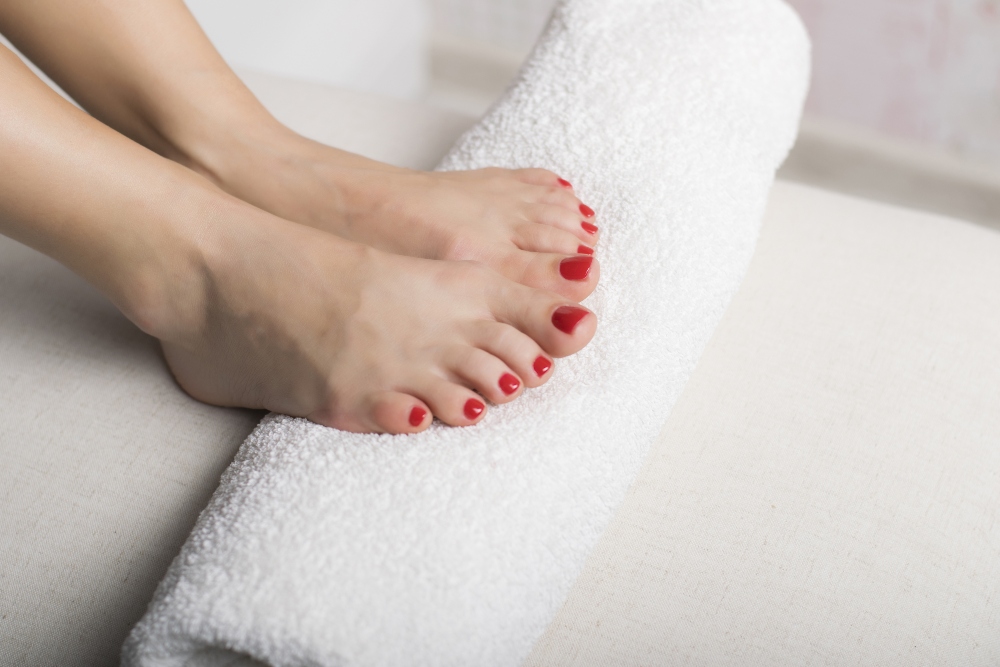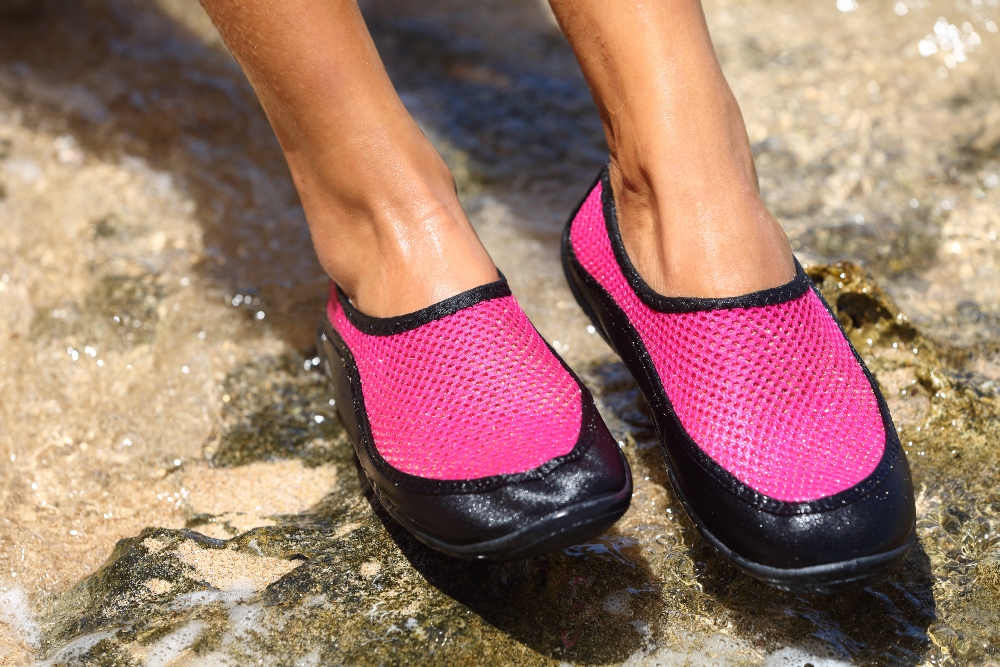For those with athlete’s foot— an infection characterized by a scaly rash— the itching, stinging or burning can be unbearable. Whether your feet are in enclosed shoes or not, the irritation around your toes lasts, and even when treated with over-the-counter medication, the rash often recurs.
Seen most commonly as a highly contagious fungal infection, athlete’s foot can be spread through contaminated floors or exposed materials such as towels and clothing. Luckily, there are certain things you can do, or even not do, to avoid contraction.
We’re here to help you discover how to prevent athlete’s foot. Protect yourself from this persistent fungus with these precautionary measures:
Let Your Toes Breathe

Do you remember “growing” bacteria and fungus in petri dishes in your high school science class? Those enclosed dishes were highly moisturized, warm chambers, and the perfect environments for breeding fungal infections.
Tight and unbreathable shoes are similar to petri dishes in many ways. Once you contract the infection, the hot, damp environment in your sneakers or boots traps the fungus and can cause it to grow.
Wearing shoes made with more porous fabrics like canvas, or, believe it or not, leather, could increase circulation in your shoes. Be mindful to avoid wearing tight, enclosed shoes for long hours– and when you are home, take off your socks while lounging to allow them to breathe.
Keep Your Feet Dry

Those with sweaty feet should be more mindful, as that extra moisture trapped in your socks and shoes helps athlete’s foot spread.
Protect your feet with dry agents like baking soda, baby powder or cornstarch. Smooth them over your feet before putting on your socks and lightly line the inside of your shoes. If you are prone to excessive sweating, it may be worthwhile to spray your shoes with an antifungal spray too.
Alternating your shoes regularly can give your recently worn pairs time to dry. Try wearing fresh socks daily as well.
Don’t Share Towels or Clothes

Athlete’s foot is associated with weeping and oozing rashes, which make the fungal infection highly contagious.
If someone in your family or whom you live with has this condition, be on guard. Those with itchy rashes are often tempted to pick at them, and can spread the rash to their hands and other parts of their body. That means, not only should you never share shoes and bathroom towels, but communal blankets, carpets and other porous areas are fair game for the fungus to live.
When walking around you home, be sure to wear protective footwear, wash your hands often, and don’t be shy with the antifungal spray. If using shared showers or baths, make sure to clean them before each use, and when washing your own feet, make sure you use warm water and soap between your toes.
Avoid Being Barefoot (or in Flip-Flops!) in High Traffic, Public Areas

This fungal infection often spreads like wildfire in public, moist areas, such as community swimming pools, saunas, locker rooms and showers.
If you’re rinsing off at the gym, make sure you bring enclosed rubber shoes, as sometimes even flip flops won’t protect you. Crocs are a great choice for athlete’s foot prevention, as they have holes to allow for your feet to breathe, but are still relatively enclosed. Or, opt to wear mesh water shoes.
Don’t Always Assume Your Foot Rash is Athlete’s Foot
It’s easy to mistake athlete’s foot for other conditions, as it’s closely related to other fungal infections such as ringworm. There’s also forms of bacteria, not fungus, that could cause similar irritation and symptoms.
Without a professional opinion, you may not be treating the right condition.
Our team at Foot & Ankle Group are here to help properly diagnose and care for people with foot rashes and any other foot and ankle issues you may be facing. For those with severe flare-ups, we strive to get you in the same day!
Come in for a consultation for quick relief by calling 239-936-5400 today.
Categorized in: Blog